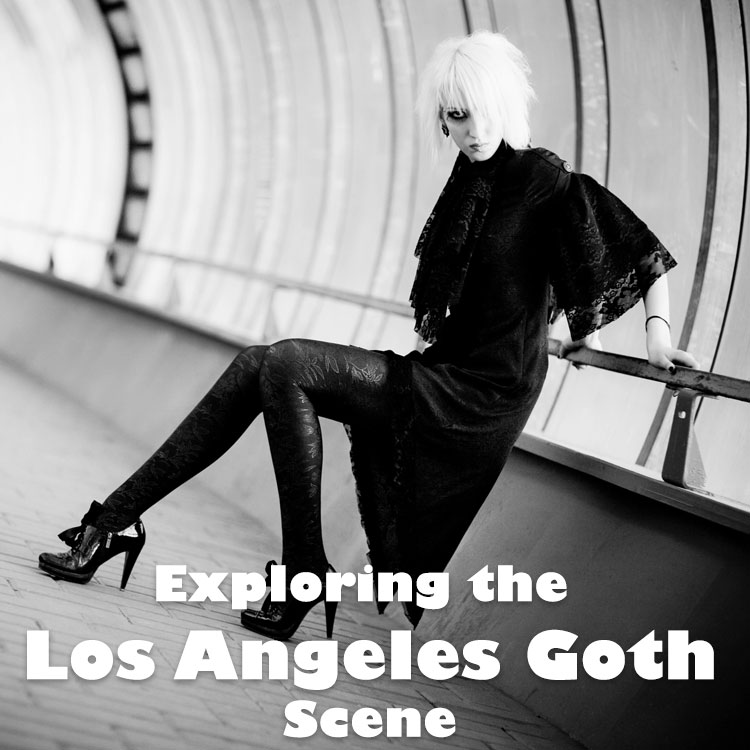
French Pop Music
Known for its elegance, sophistication, and romantic flair, French pop music has captivated audiences around the globe for decades. With legendary artists like Serge Gainsbourg, Édith Piaf, and Charles Aznavour, French pop music has a rich history that dates back to the 1950s. From ballads that tug at your heartstrings to infectious dance beats that make you want to hit the dancefloor, this genre offers a diverse range of musical styles and emotions. In recent years, contemporary French pop has experienced a resurgence, with plenty of French pop music bands blending traditional sounds with modern influences. Whether you’re a fan of heartfelt lyrics, catchy melodies, or simply want to explore a new genre, French pop music offers a captivating musical journey that will transport you to the romantic streets of Paris. So put on your headphones, press play, and let the magic of French pop music sweep you away.
History of French Pop Music From 1940 to 2025
French pop music has a rich and diverse history that spans several decades. It emerged in the 1940s and 1950s with artists like Edith Piaf, Jacques Brel and Charles Aznavour, who paved the way for the genre’s popularity. These artists brought a new level of sophistication to the music scene with their poetic lyrics and emotional performances.
In the 1960s, French pop music experienced a cultural revolution with the emergence of the yé-yé movement. Yé-yé, which means “yeah yeah” in French, was a style of pop music characterized by its catchy melodies and upbeat rhythms. Artists like Jaques Dutronc, Françoise Hardy and Sylvie Vartan became icons of the yé-yé movement with popular French songs captivating audiences with their youthful energy and charm.
The 1970s and 1980s saw the rise of disco, French rock and new wave influences in French pop music. Artists like Etienne Daho, Indochine, Noir Desir, Jean-Jacques Goldman, Vanessa Paradis and Mylène Farmer embraced these trends, creating a unique fusion of French and international sounds. The 1990s marked a shift towards a more electronic sound, with acts like Daft Punk, Air, David Guetta gaining popularity both in France and abroad.
In recent years, French pop music has continued to evolve, blending traditional sounds with modern influences. French musicians like Charlotte Gainsbourg (daughter of Serge Gainsbourg and Jane Birkin) Clara Luciani, La Femme, Benjamin Biolay, Christine and the Queens, Carla Bruni and Stromae have taken the international music scene by storm, pushing the boundaries of the genre and captivating audiences with their innovative sound and thought-provoking lyrics.
Influential French Pop Music Artists
French pop songs have been shaped by a number of influential artists who have left a lasting impact on the genre both in its home country and internationally. Various artists have not only achieved commercial success, but have also pushed the boundaries of what French pop music can be.
French artist Serge Gainsbourg is often regarded as one of the most influential figures in French pop music. Known for his provocative lyrics and unique blend of pop, jazz, and reggae, Gainsbourg challenged societal norms and pushed the boundaries of the genre. His collaborations with artists like Jane Birkin and Brigitte Bardot (“Je T’aime, Moi Non Plus”) are considered iconic.
Édith Piaf, also known as “The Little Sparrow,” is another legendary figure in French pop music. Her powerful and emotional performances captivated audiences around the world, and her songs like “La Vie en Rose” and “Non, je ne regrette rien” have become timeless classics.
Charles Aznavour, often referred to as the “French Frank Sinatra,” is known for his soulful voice and heartfelt lyrics. With a career spanning over seven decades, Aznavour has become one of the most successful French artists of all time, selling over 180 million records worldwide.
In recent years, a new generation of artists has emerged, bringing fresh perspectives and innovative sounds to French pop music. Indochine, for example, has gained international recognition for its socially conscious lyrics. Their debut album was an instant hit in the 80’s. After hitting a low in the 90’s, they came back as the biggest French bands in early 2002 with the single “J’ai Demandé à la Lune”. Hip Hop bands like IAM and NTM also made a mark on the French music scene with poetic and rough lyrics about social and race inequalities.
These artists, along with many others, have contributed to the rich and diverse tapestry of French pop music, shaping its evolution and ensuring its continued relevance in the global music scene.
Characteristics of French Pop Music
French pop music is characterized by its elegance, sophistication, and romantic flair. It combines elements of traditional French chanson with influences from various genres such as jazz, reggae, disco, hip hop and electronic music. These diverse influences contribute to the unique sound and style of French pop music.
One of the defining features of French pop music is its emphasis on poetic lyrics. French is known for being a language of romance and beauty, and this is reflected in the lyrical content of French pop songs. Artists like Serge Gainsbourg and Édith Piaf are known for their poignant and thought-provoking lyrics, which often explore themes of love, loss, and societal issues.
Another characteristic of French pop music is its ability to evoke emotion. Whether it’s a heartbreaking ballad or an upbeat dance track, French pop music has a way of connecting with listeners on a deep, emotional level. Artists like Charles Aznavour and Mylène Farmer are known for their ability to convey raw emotion through their performances, leaving a lasting impact on their audiences.
French pop music also places a strong emphasis on melody and rhythm. Catchy melodies and infectious beats are a common feature of French pop songs, making them instantly recognizable and enjoyable to listen to. This emphasis on melody and rhythm contributes to the genre’s popularity and appeal.
Overall, the combination of poetic lyrics, emotional performances, and catchy melodies makes French pop music a truly unique and captivating genre that continues to captivate audiences around the world.
Popular French Pop Music Songs and Albums
French pop music has produced a plethora of popular songs and albums that have become iconic in their own right. These songs and albums have not only achieved commercial success, but have also become cultural touchstones that define the genre.
One of the most iconic French pop songs of all time is “La Vie en Rose” by Édith Piaf. Released in 1947, this song has become a symbol of French culture and is often associated with the romantic streets of Paris. Its timeless melody and heartfelt lyrics continue to resonate with listeners to this day.
Serge Gainsbourg’s album “Histoire de Melody Nelson” is another landmark release in French pop music. Released in 1971, this concept album tells the story of a doomed love affair and is considered a masterpiece of the genre. Its fusion of pop, jazz, and rock elements, along with Gainsbourg’s provocative lyrics, pushed the boundaries of what French pop music could be.
In recent years, contemporary French pop artists have also produced chart-topping hits that have gained international recognition. Christine and the Queens’ song “Tilted” became a viral sensation, topping charts around the world and introducing a new generation to the sound of French pop music. Similarly, Stromae’s hit single “Papaoutai” not only achieved commercial success, but also sparked important conversations about absent fathers and the impact of technology on society.
These songs and albums, along with many others, have become an integral part of the French pop music canon, defining the genre and leaving a lasting impact on listeners.
French Pop Music in the Global Music Scene
French pop music has had a significant impact on the global music scene, influencing artists from around the world and contributing to the diversity of musical styles and genres.
In the 1960s, the yé-yé movement brought French pop music to the international stage, with artists like Françoise Hardy and Sylvie Vartan gaining popularity outside of France. Their catchy melodies and youthful energy resonated with audiences around the world, introducing them to the sound of French pop music.
In recent years, contemporary French pop artists have achieved international success, further cementing the genre’s place in the global music scene. Artists like Daft Punk, Phoenix, M83 and Air have not only topped charts in France, but have also gained recognition in countries like the United States and the United Kingdom. Their innovative sound and thought-provoking lyrics have resonated with listeners from diverse cultural backgrounds, showcasing the universal appeal of French pop music.
French pop music has also influenced artists from other genres, leading to collaborations and fusions that blur the boundaries between musical styles. Artists like Madonna, who worked with French producer Mirwais on her album “Music,” have incorporated elements of French pop music into their own sound, creating a unique blend of styles.
Overall, French pop music has made a significant impact on the global music scene, contributing to its diversity and influencing artists from around the world.
French Pop Music Festivals and Events
French pop music is celebrated and showcased through various festivals and events that bring together artists, fans, and industry professionals. These events provide a platform for emerging talent, as well as an opportunity for established artists to connect with their audience.
One of the most prestigious French pop music festivals is the Francofolies de La Rochelle. Held annually in La Rochelle, this festival showcases a diverse range of French-speaking artists from France and around the world. It has become a hub for discovering new talent and celebrating the rich heritage of French pop music. Other major festivals include Rock en Seine which takes place in Paris as well as La Route du Rock in Saint-Malo.
Another popular event is the Victoires de la Musique, which is the French equivalent of the Grammy Awards. This annual ceremony honors the best French artists and celebrates their contributions to the music industry. It brings together artists from various genres, including French pop music, and provides a platform for recognition and celebration.
In addition to these large-scale festivals and events, there are also smaller, more intimate gatherings that focus specifically on French pop music. These events provide a unique opportunity for fans to connect with their favorite artists and immerse themselves in the world of French pop music.
Whether it’s a large-scale festival or a small, intimate gathering, these events play a crucial role in promoting and celebrating French pop music, ensuring its continued growth and relevance in the music industry.
French Pop Music and Cultural Identity
French pop music is deeply intertwined with the cultural identity of France. It reflects the country’s rich history, its artistic heritage, and its unique way of life. As such, it plays a crucial role in shaping and preserving French culture.
French pop music often explores themes that are deeply rooted in French society and history. French bands and artists have used their music as a platform to address social and political issues, giving voice to the concerns and aspirations of the French people. Their songs have become anthems of resistance, hope, and love, resonating with listeners and becoming a part of the collective memory of France.
French pop music also reflects the elegance and sophistication that is often associated with French culture. The poetic lyrics, the melodic compositions, and the emotional performances all contribute to the image of France as a country of romance, beauty, and refinement. French pop music embodies these qualities and showcases them to the world.
Furthermore, French pop music serves as a platform for the French language. It showcases the beauty and versatility of the French language, allowing it to be heard and appreciated by audiences around the world. French pop songs have become a way for people to learn and appreciate the French language, further strengthening the cultural ties between France and the rest of the world.
In essence, French pop music is an integral part of French culture and identity. It reflects the country’s history, its artistic heritage, and its unique way of life, making it a cherished and celebrated aspect of French society.
French Pop Music and its Impact on Society
French pop music has often been a catalyst for social change and a reflection of the societal issues of its time. Artists have used their music as a means of expressing their thoughts and opinions, sparking important conversations, and challenging societal norms.
In the 1960s, French pop music played a significant role in the cultural revolution of the time. The yé-yé movement, with its emphasis on youth culture and freedom of expression, challenged traditional values and paved the way for a more liberal and progressive society. Artists like Françoise Hardy and Sylvie Vartan became symbols of this movement, inspiring a generation of young people to embrace change and question authority.
Similarly, in the 1970s and 1980s, French pop music reflected the social and political climate of the time. Artists like Michel Berger and France Gall used their music to address issues such as gender equality, environmentalism, and social justice, sparking important conversations and raising awareness.
In recent years, contemporary French pop artists have continued this tradition of using their music to address important societal issues. Indochine and Christine and the Queens, for example, have been a vocal advocate for LGBTQ+ rights and gender equality, using her music to challenge stereotypes and champion inclusivity. French singer Stromae has also used his music to address important topics such as mental health and social inequality, sparking important conversations and raising awareness.
French pop music’s impact on society extends beyond its ability to spark conversations and raise awareness. It also serves as a source of comfort, inspiration, and solace for listeners. Whether it’s a song that provides hope in times of adversity or a ballad that captures the essence of a shared experience, French pop music has the power to connect people and create a sense of unity. French pop music’s impact on society is multifaceted. It serves as a platform for expression, a catalyst for change, and a source of comfort and inspiration, making it an important and influential force in the world.
The future of French pop music is bright and promising. As the genre continues to evolve and adapt to new influences, it will undoubtedly captivate new audiences and push the boundaries of what French pop music can be.






